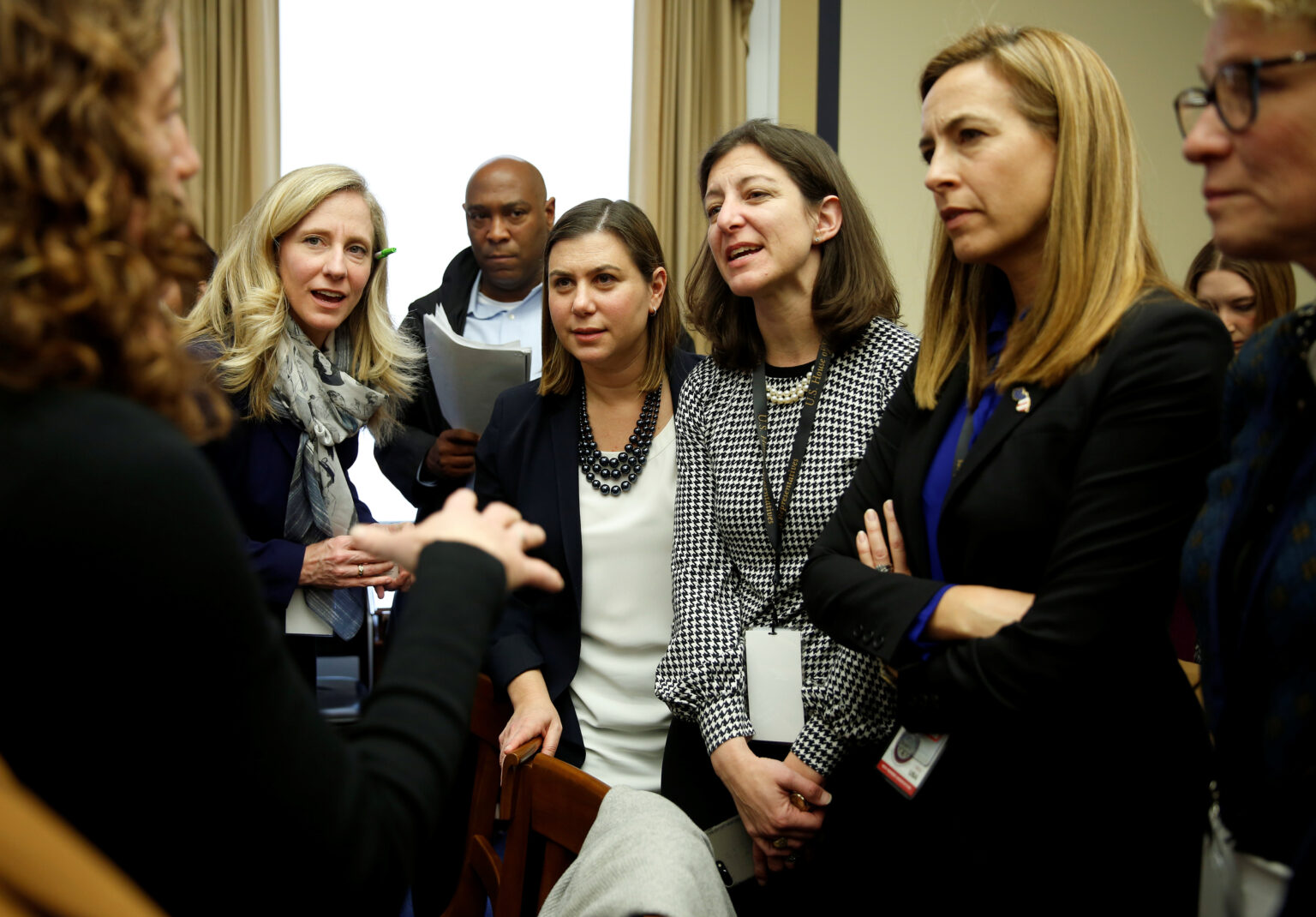Rising Centrist Women in Democratic Politics: A New Era of Leadership
In the early days of President Donald Trump’s administration, a new generation of political figures emerged, many of whom had backgrounds rooted in national security and public service. These women, often connected through close-knit networks and shared experiences, have since become influential voices within the Democratic Party, shaping its trajectory and electoral strategies.
From Military and Intelligence to Political Powerhouses
Among these emerging leaders are Abigail Spanberger, Mikie Sherrill, and Elissa Slotkin-women with distinguished careers in intelligence, military service, and law enforcement. Their entry into politics was largely unanticipated; they initially had no plans to run for office. However, the 2016 election of Donald Trump served as a catalyst, prompting many to seek change through public service.
Spanberger, now 45, secured her party’s nomination for governor of Virginia, positioning herself as a key contender in the upcoming statewide race. Similarly, Sherrill, 53, is the Democratic nominee for governor in New Jersey, where her campaign emphasizes her military background and commitment to pragmatic governance. Slotkin, 48, a freshman senator from Michigan, has been entrusted with delivering the Democratic response to Trump’s congressional address and is preparing a comprehensive strategy to challenge him in future elections.
The Democratic Strategy: Emphasizing Moderation and Service
The rise of these women signals a strategic shift within the Democratic Party, echoing tactics from Trump’s first term. Their profiles-characterized by military or intelligence service and a focus on national security-have been instrumental in appealing to moderate voters and countering the more progressive factions of the party. During the 2018 midterms, candidates with similar backgrounds successfully flipped Republican-held districts, demonstrating the electoral strength of this approach.
Despite their successes, the party faces internal debates. Progressive factions, including the so-called “Squad,” advocate for more radical reforms, while centrists like Spanberger, Sherrill, and Slotkin emphasize pragmatic solutions and bipartisanship. Post-2020, Spanberger voiced concerns about the party’s branding, urging Democrats to distance themselves from labels like “socialist,” and Slotkin has publicly challenged the rhetoric of figures like Bernie Sanders, highlighting the ongoing ideological tensions within the party.
The “Moderate” Women: A New Face of Democratic Resilience
Currently, these women are at the forefront of electoral discourse, embodying a pragmatic, service-oriented approach to politics. Spanberger, for example, is preparing for a high-stakes race against Virginia’s lieutenant governor, Winsome Earle-Sears, a Marine veteran and supporter of Governor Glenn Youngkin. This contest is expected to serve as a referendum on Trump’s influence and the broader national political climate.
Both Spanberger and Sherrill often cite their shared experiences as working mothers, navigating the challenges of balancing family life with demanding careers in public service. Their personal stories resonate with voters, illustrating the human side of politics and emphasizing their commitment to community and country.
Campaigns and Challenges in Key States
In New Jersey, Sherrill’s campaign has centered on her military service and her stance against the influence of Trump and wealthy donors like Elon Musk. Her victory in a competitive primary was driven by her clear messaging and her vow to oppose what she calls “Trump-Musk madness.” As she campaigns for governor, her focus remains on contrasting her leadership with her Republican opponent, Jack Ciattarelli, who has aligned himself with Trump’s policies.
Meanwhile, Slotkin’s role remains pivotal behind the scenes. She advocates for party unity, comparing political factions to military units that must work together to succeed. Her “war plan” against Trump is rooted in the belief that a cohesive strategy is essential for Democratic victories, especially in swing states.
The Future of Democratic Moderates
The influence of these women extends beyond their campaigns. Their leadership exemplifies a broader trend within the Democratic Party-one that values experience, bipartisanship, and a focus on national security. As the party prepares for upcoming elections, their success will likely serve as a blueprint for recruiting and supporting candidates who can appeal to a diverse electorate.
In a political landscape often characterized by intense polarization, the stories of Spanberger, Sherrill, and Slotkin highlight the importance of pragmatic, service-driven leadership. Their journey from military and intelligence backgrounds to political prominence underscores a resilient, adaptable approach to governance-one that may well define the Democratic Party’s path forward in the years to come.

